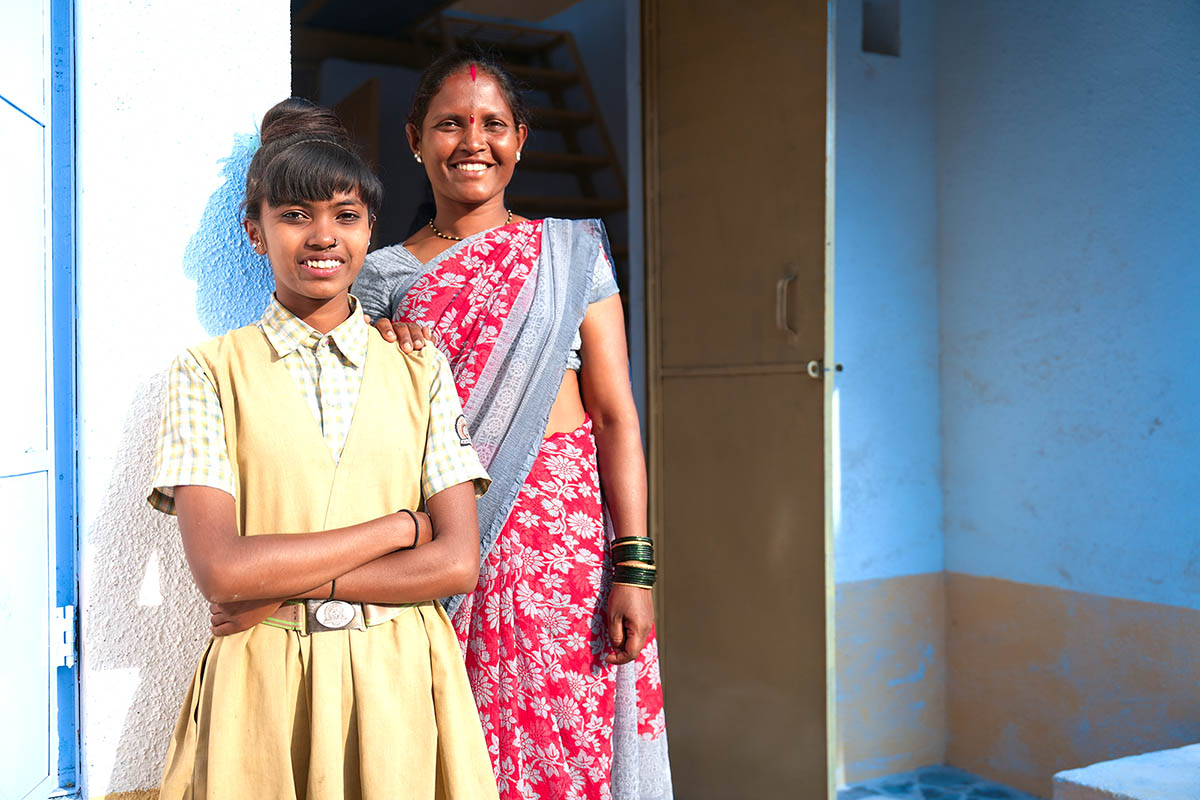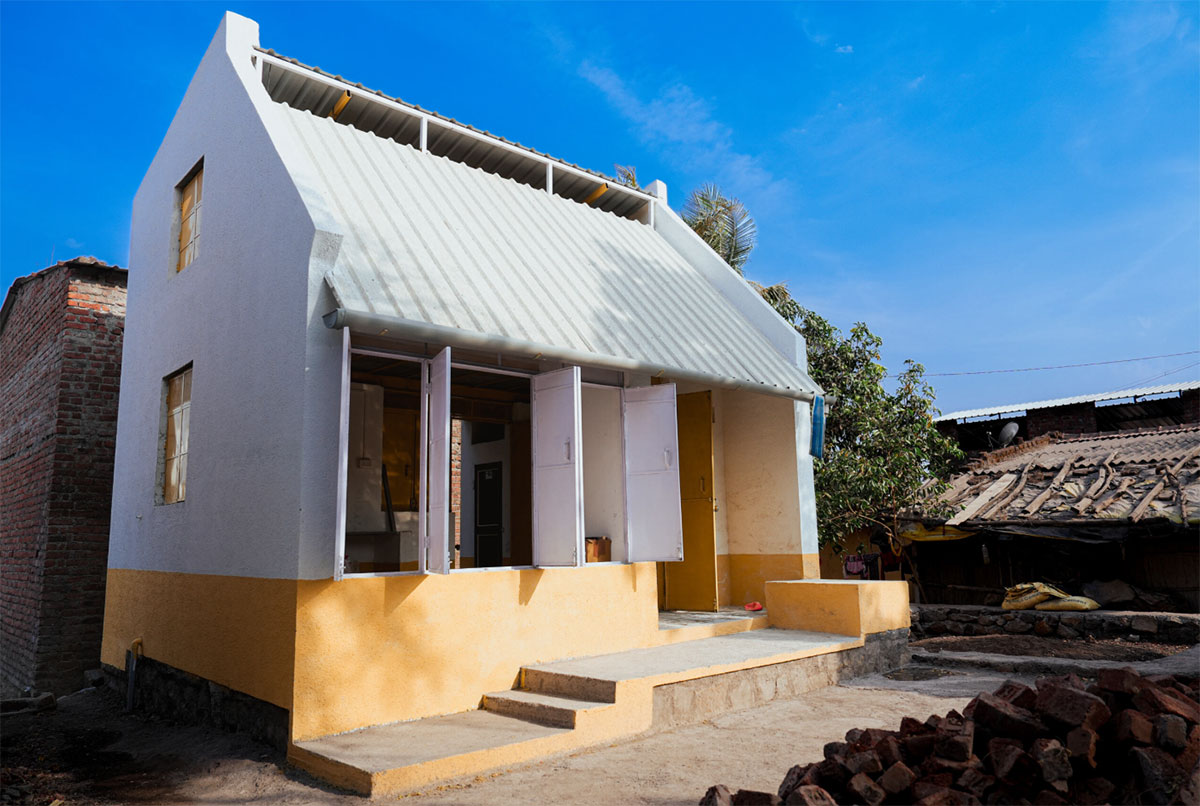“We are a family of 6 and used to live in a small hut. We could barely sleep and had very little space to do our household work. In the rainy season it was difficult for all of us to live in that small shack which hardly qualified as a home.” – Motiram.
If he had not partnered with Habitat for Humanity India, Motiram and his family would still live in a small, run-down, mud-walled house in Wada village, located in Khed block of Pune district in Maharashtra. The mud walls and thatched roof offered little protection to the family especially during the unforgiving monsoon season.
“During heavy rains, water used to seep into the house, causing many problems. The kids would fall sick frequently. The entire family's security was at stake. We had one metal suitcase in which we kept important documents such as the ration card, Aadhaar cards, etc. That suitcase protected our identity all these years,” Motiram continues.
A fisherman by profession, Motiram's daily struggles were compounded by the declining yields from the nearby river, where he cast his nets in the hopes of a meagre catch. The absence of basic amenities like electricity, toilet and bathroom made life even more challenging especially for his wife and young children. Daily expenses ate away into his earnings while the cost of medical bills made savings impossible.
Motiram and his family’s dreams of a better life and a habitable home seemed improbable. But partnering with Habitat for Humanity India proved to be instrumental.
In 2023, Habitat for Humanity India undertook an innovative project to build climate-resilient homes, an effort to build homes sustainably amidst the rising challenges of climate change. The homes are designed in a unique way and consist of a living room, kitchen, bedroom, bathroom, and a toilet. The climate-resilient features of each home include natural ventilation, natural light, solar rooftop, rainwater harvesting, grey water treatment and a vegetable garden.
Homeowners share their stories of transformation after moving into their climate-resilient homes in Pune, Maharashtra.
Handover of Climate Resilient Homes To Katkari Community In Maharashtra
“My children used to study under candlelight. Now, with proper lights, studying is easier for them. We are very happy to see their improvement. Also, they won't get sick as much anymore,” he further adds.
His new home stands as a symbol of resilience and progress. Equipped with solar energy and rainwater harvesting facilities, it offers a ray of light amidst the darkness of their previous struggles. With uninterrupted power supply, his children can now study even at night, making cooking and other household chores easier too. The bathroom and sanitation unit brings a newfound sense of dignity and convenience to his family’s daily lives. Motiram’s journey from hardship to hope is a testament to the transformative power of housing. A brighter future now seems within reach. "Our new home is a source of unending happiness and pride for me. My children love this house. My wife is not worried about my children’s safety anymore. Now, we can finally embrace a future filled with promise and possibility."
For Motiram's family, the new home represents more than just shelter – it's a place to thrive and grow.
The climate resilient housing project is supported by Mr. Ashish Kacholia (Investor), Mr. D.C. Patel (Managing Director, Laxmi Board and Paper Mills Pvt. Ltd) and Mr. R. Gopal (Managing Director, Goodrich Maritime Pvt. Ltd.).




